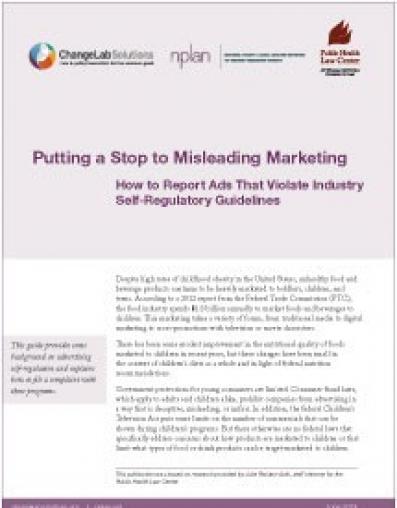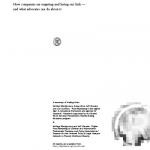Identifying and Reporting Unfair, Misleading, and Deceptive Marketing
How to report violations to the FTC
Recent years have seen an increase in the amount and type of marketing of unhealthful foods and beverages to children and teens. Some of these marketing campaigns may violate federal laws against deceptive or unfair practices. They may also violate industry’s own self-regulation principles.
Researchers and advocates can help limit the marketing of unhealthy foods to youth by referring examples of deceptive or unfair marketing to the Federal Trade Commission (FTC). The FTC enforces federal laws against such marketing practices in all media, including television, radio, print, websites, mobile phones, and even word of mouth. Because the FTC has a small staff relative to its responsibilities, it relies on the public to bring violations to its attention. ChangeLab Solutions developed Identifying and Reporting Unfair, Misleading, and Deceptive Ads and Marketing to inform researchers and advocates about how to identify deceptive or unfair marketing practices and how to notify the FTC.
Similarly, researchers and advocates can report violations of industry self-regulation principles to the bodies overseeing self-regulation. Self-regulation generally involves a code of conduct or standards to which companies adhere, as well as a body that is charged with enforcing the code of conduct or standards. The Children’s Advertising Review Unit (CARU) and the Children’s Food and Beverage Advertising Initiative (CFBAI) are the two self-regulatory programs that focus on advertising directed toward young children. Our other fact sheet, Putting a Stop to Misleading Marketing: How to Report Ads that Violate Industry Self-Regulatory Guidelines, explains the self-regulatory programs and includes information on how to file a complaint. You can also download our chart, CARU’s Food-Related Guidelines and Examples of Cases.
Downloads




